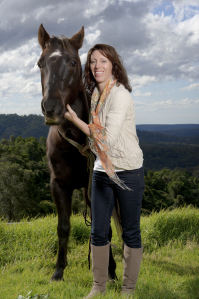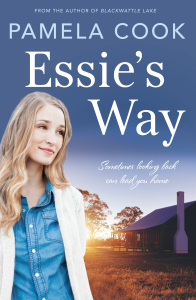 In your workshop, Wildwords, you’ll be teaching students key tools to help them engage with their creativity and to develop stronger writing practices. What do you see as some of the major creative impediments that writers face when they begin a project?
In your workshop, Wildwords, you’ll be teaching students key tools to help them engage with their creativity and to develop stronger writing practices. What do you see as some of the major creative impediments that writers face when they begin a project?
The biggest problem for many writers is dealing with the inner critic – that nagging voice in your head that says ‘You can’t write that’, ‘This isn’t good enough’, ‘Why are you even bothering?’. Getting past that is really hard but it’s a matter of separating the creative process from the editing/revision process and giving yourself permission to write anything. Another problem is procrastination. This is often related to the inner critic issue as we become afraid that what we write will never be good enough and so we never start.
Can you tell us some of the processes you personally go through to kick-start your own writing?
I’m a big fan of morning pages and journalling. Writing without censorship or self-judgement can help you get to the bottom of your preoccupations. Freewriting (sometimes called automatic writing) is a great way to tap into your subconscious – you can end up writing something you don’t even recognize as your own! When I’m working on a novel and I get stuck at a particular point I try and make myself sit down and write whatever comes into my head. It can always be deleted later (and usually is) but it’s a way to at least get my head back into the story and get the creative juices flowing again. I’ll be talking about all these methods and more in the workshop.
You participated in NaNoWriMo (National Novel Writing Month) which helped you to get a draft for your first novel, Blackwattle Lake, and you also regularly participate in writers groups. How important is it to share your work and engage with other writers when you’re struggling with the creative flow?
Nano taught me that getting a draft out fast really works. It’s the same principle as freewriting. Engaging with other writers is crucial if you want to write and keep writing. It’s a very solitary pursuit and while being alone with your thoughts is an important part of the process, connecting with fellow writers, getting feedback on your work (and giving it to others), supporting and encouraging each other, celebrating the successes and commiserating on the rejections – all of these things are so important if you want to last the distance, especially if your goal is publication. I wouldn’t still be writing if it wasn’t for my writing buddies and I would certainly never have been published.

You’re a writer of Australian fiction with a country heart. Can you give us a sneak peak into what we can expect from your next book, Close to Home, scheduled for release by Hachette in July?
I’m really excited about this book. It’s a story about finding your family, re-connecting and embracing life. Here’s the blurb:
When 34 year old veterinarian Charlie Anderson is sent to the small town of Naringup on the south coast of NSW to investigate a possible outbreak of the deadly hendra virus she finds herself torn between the haunting memories and her dedication to her job.
She visits the suspect property, Willowvale, only to discover it’s owned by her estranged cousin and Emma’s equally hostile husband Garth McDowell. Determined to remain professional Charlie enlists the help of local police officer Jacqui Pearce and begins the inspection process. Along with local Park Ranger Joel Drummond, she attempts to contain the hysteria surrounding the disease but finds herself unwillingly drawn to Joel. As the situation at Willow Vale worsens and McDowell’s behaviour threatens to harm more than the horses he breeds, Charlie is forced to deal with her buried grief and act to save the people she once loved.
Pamela is teaching Wildwords at the NSW Writers’ Centre on Saturday 31 January, 10am-4pm. For more information and to book your spot, click here.
